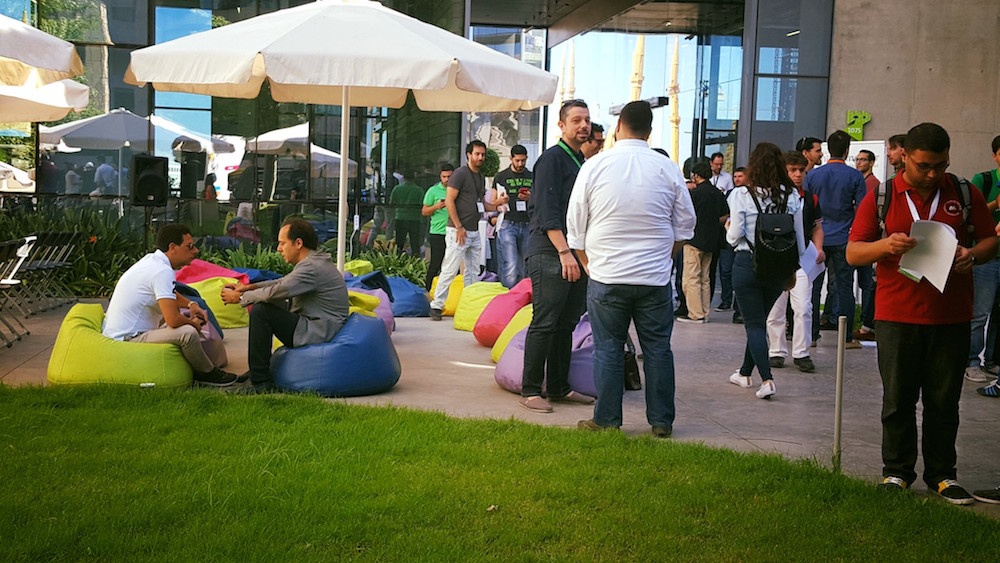Making social pay, #MixNMentor Beirut

If you had a choice between having a $10 million business and being on the cover of Forbes magazine, or running a $50 million business and no one knowing who you were, what would you do?
Sabine El Kahi was firm with her answer - she didn’t care for either.
“We only have this life once and what matters is that we make an impact,” she said at Mix n’ Mentor Beirut on Friday.
Such conviction from a woman who’s startup Kids Genius works to bring children into contact with engineering and science through maker activities, was an apt way to start Wamda’s latest Mix n’ Mentor event.
Not least because of the new addition to the mentoring sessions, social entrepreneurship.
.@ChaqorYoussef "It's sexy to be in social entrepreneurship but we can't seem to raise money. How can we raise money?" #MixNMentor pic.twitter.com/Cprww4stKN
— Wamda ME (@WamdaME) September 30, 2016
There has always been some fogginess in Lebanon, and indeed around the region, around the words ‘social entrepreneur’. How does one define such a startup? How can they make money? Should they make money? Where can they find support?
A prominent topic of debate was how to define a social enterprise. The consensus was that a line needed to be drawn between whether your idea was an NGO, a charity group, or a profit-making business.
“What do you put first, being a profitable business as a defining factor, or the social good?” asked one entrepreneur.
One participant said, “no, if you want anyone to give you money, especially an investor, you have to show how to make profit, not just how you’re going to ‘give back’”.
One way to distinguish a business from an NGO is to have a profitable business model.
For mentors Zeina Saab of Nawaya and Mike Clarke of the Open Source Action Network, the issue of making money was still a very real one.
Amongst attendees to the day’s events the chatter centered around how the Lebanese startup ecosystem was progressing was mixed. While some were still critical of it’s inability to compete, not only worldwide but regionally, others were keen to highlight the massive strides that had been made in recent years. Here are a collection of some of those thoughts.
“There were many startups that changed and got investments, there was a rush and now it's a bit less creative, not seeing these wow ideas anymore.” Randah Farah, Lebtivity
“It’s growing exponentially. When we started two years ago it was a very tiny environment and everybody is learning together and that is what is exciting. I feel we’re all comrades in a way.” Sabine de Maussion Arida, Makerbrane
“We’re innovators, we like to have new things, we like to be open to everything. It’s going to be on the map, sooner or later.” Samir Hammoudeh, Payfort
“The ecosystem here is similar to a pitching session, we’re working too much on delivery and not so much on content.” Tarek Matar, GIRMS (GIS, Mapping, and Remote Sensing)
“I see a lot of people with ideas trying to detangle themselves from the political, economical and discouraging environment that roams around. They want and will surely create something new.” Faissal Abdallah, Anzimaty
“It’s hard to find hires here. People in London are asking for less money but they want equity - here they’re not interested in that. It’s a real struggle.” Karl Naim, Chefxchange
“The scene is getting a reputation amongst other countries. However, while it is serving its communities it is still not competitive.” Saïd Abou Kharroub, GIRMS
“We have ideas that compete worldwide. We're being raised as receivers, and rarely initiators. But we have to create the means if they don't exist.” Sabine El Kahi, Kids Genius
“Best thing is youngsters are not confined to looking at the corporate world - it’s a momentum to be applauded.” Nizar Wannous, Dizly
“We’re growing too slow compared to Dubai. We don’t have the knowledge or resources to create a competitive ecosystem. It’s not easy.” Sameeh Harfoush, Brate
"If you can make it in Lebanon you can make it anywhere, it's tough and there is no support - and don't think that Lebanon is the gateway to the rest of the Middle East, the Middle East is all just one market.” Ali Al Amine, Fitrepublik
Feature image via Wamda.


